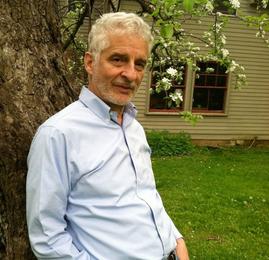 |
|
| Daniel Menaker (photo: Katherine Bouton) |
|
Daniel Menaker, "who incubated literary celebrities as executive editor in chief of Random House and as a senior fiction editor of the New Yorker, and who, as a wry and discerning stylist, became a critically praised author himself," died October 26, the New York Times reported. He was 79.
Mentored by William Shawn and William Maxwell at the New Yorker, Menaker oversaw fiction primarily and edited reviews by the film critic Pauline Kael. He was only 10 years old when his first New Yorker contribution appeared, a Talk of the Town item "about a classmate who had identified Columbus’s fleet as 'the Atchison, the Topeka and the Santa Fe' railroads," the Times noted. Menaker later told the Brooklyn Rail: "Miraculously, they recast it a bit and published it. I guess it set me on the road to authorial vanity and perdition."
At Random House, he edited the poetry and prose of Noah Baumbach, Michael Chabon, Billy Collins, Ted Conover, Mavis Gallant, Jonathan Kellerman, Colum McCann, Alice Munro, V.S. Pritchett, Salman Rushdie, Gary Shteyngart, Daniel Silva and Elizabeth Strout, among others.
As an author, Menaker's works include the memoir My Mistake (2013), The Treatment (1998), The Old Left and Other Stories (1987), The Worst (1979, with Charles McGrath) and A Good Talk: The Story and Skill of Conversation (2010). Just before he died, he had completed Terminalia, a book of poems about cancer in a time of pandemic. It will be published this fall by Portal Press and distributed by n + 1 Foundation.
Menaker was hired by the New Yorker in 1968 as a fact checker, and was working as a copy editor "when, by his account, Mr. Shawn dismissed him as a know-it-all, but not before telling him that he could stay on while taking as long as he needed to find another job." The Times noted, adding: "It took 26 years."
He left the magazine after Tina Brown took over as editor in the 1990s, and was hired in 1995 by her husband, the late Random House publisher Harold Evans, to be a senior literary editor. After a brief hiatus as executive editor of HarperCollins, Menaker returned to Random House as executive editor in chief of the Random House Publishing Group in 2003. He left in 2007.
On Twitter, n + 1 editor Benjamin Kunkel wrote: "In spite of being something like the consummate publishing insider, Dan always struck me as an amateur, in the old sense of the word, in that he seemed just to love what he did--writing, reading, editing--never mind that he got paid (pretty handsomely, he acknowledged) to do it. I don't know anybody whose good nature seemed to come more naturally to him."

